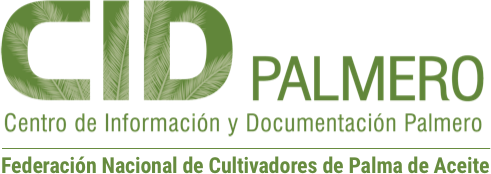| dc.creator | Daus, Amatzin
41223,
autor.
aut | |
| dc.date | ©2004 | |
| dc.description | A fundamental principle of sustainable development requires the protection of the three pillars of planet, people and profit. From Rio (1992) to Johannesburg (2002), what have we achieved? There is little doubt that globalisation, technological advancement and increased concern for the environment, coupled with demand from consumers, seems to be the preoccupation and trend today. But alas, in an ancient occupation like agriculture many are not aware of the practices and systems that fulfil the concept of corporate governance. Corporate governance is not just about accountability, transparency and integrity; it must incorporate basic norms such as honesty, fairness and ethical values. Take the case of oil palm cultivation and palm oil processing in particular and the plantation industry in general where established regulations and practices provide ample mechanisms to ensure sustainability of the business. It is the aim of this paper to share some practices and systems, which have been in place for some time and recent developments within the scope of the Malaysian oil palm sector towards enhancing good corporate governance. The essence of good corporate governance is demanded in the business of oil palm cultivation and palm oil processing as much as with other enterprises such as banking, manufacturing and services. It shows how scientific research and development efforts can complement plantation management skills to promote a model that suits long-term investment in tandem with sustainable agriculture. Good agriculture practices, best management practices, integrated pest management and Malaysianisation of ownership of the equity are some fine examples. Private sectors initiatives such as the zero-burning technique for land preparation have been adopted by the authorities and have crystallised into regulations. Other legislation that encourages a hybrid of self-regulation and mandatory requirements like the issue of safety and health of workers at the work place under the Occupational Safety and Health Act 1994 (OSHA) requires urgent attention by all concerned. The modem Malaysian palm oil food industry today has inherited some excellent skills, tools and good work ethics of the trade from our forefathers. There are many "unsung heroes" who sacrificed their lives towards the development of the industry and the nation as a whole. No doubt, the demanding nature of the work has made these professionals a resilient lot. Miles of roads, spans of bridges, schools, clinics, hospitals, creches, community halls, "padangs ", airstrips and even railway lines all over the remote countryside are the result of the pioneering efforts of a group of people called planters sometimes regarded as the paramount leaders of the estates. The role of the planter in promoting good corporate governance must not be taken for granted. The day-to-day, overall, running of the property is his responsibility. He is the one expected to "walk-about","walk the talk" implementing the company's policy by "hands-on-management" in the field. The paper concludes with emphasis on collective responsibility by all stakeholders as an essential requirement to sustain the growth of the industry. The serious commitment to act by all key stakeholders involved i.e. governments, owners, directors, managers, employees, consumers and local community is vital to face the challenges of intense competition in this era of globalisation. Good corporate governance will ensure better corporate performance and hence will lead to an increase in the shareholders' wealth. | |
| dc.description | A fundamental principle of sustainable development requires the protection of the three pillars of planet, people and profit. From Rio (1992) to Johannesburg (2002), what have we achieved? There is little doubt that globalisation, technological advancement and increased concern for the environment, coupled with demand from consumers, seems to be the preoccupation and trend today. But alas, in an ancient occupation like agriculture many are not aware of the practices and systems that fulfil the concept of corporate governance. Corporate governance is not just about accountability, transparency and integrity; it must incorporate basic norms such as honesty, fairness and ethical values. Take the case of oil palm cultivation and palm oil processing in particular and the plantation industry in general where established regulations and practices provide ample mechanisms to ensure sustainability of the business. It is the aim of this paper to share some practices and systems, which have been in place for some time and recent developments within the scope of the Malaysian oil palm sector towards enhancing good corporate governance. The essence of good corporate governance is demanded in the business of oil palm cultivation and palm oil processing as much as with other enterprises such as banking, manufacturing and services. It shows how scientific research and development efforts can complement plantation management skills to promote a model that suits long-term investment in tandem with sustainable agriculture. Good agriculture practices, best management practices, integrated pest management and Malaysianisation of ownership of the equity are some fine examples. Private sectors initiatives such as the zero-burning technique for land preparation have been adopted by the authorities and have crystallised into regulations. Other legislation that encourages a hybrid of self-regulation and mandatory requirements like the issue of safety and health of workers at the work place under the Occupational Safety and Health Act 1994 (OSHA) requires urgent attention by all concerned. The modem Malaysian palm oil food industry today has inherited some excellent skills, tools and good work ethics of the trade from our forefathers. There are many "unsung heroes" who sacrificed their lives towards the development of the industry and the nation as a whole. No doubt, the demanding nature of the work has made these professionals a resilient lot. Miles of roads, spans of bridges, schools, clinics, hospitals, creches, community halls, "padangs ", airstrips and even railway lines all over the remote countryside are the result of the pioneering efforts of a group of people called planters sometimes regarded as the paramount leaders of the estates. The role of the planter in promoting good corporate governance must not be taken for granted. The day-to-day, overall, running of the property is his responsibility. He is the one expected to "walk-about","walk the talk" implementing the company's policy by "hands-on-management" in the field. The paper concludes with emphasis on collective responsibility by all stakeholders as an essential requirement to sustain the growth of the industry. The serious commitment to act by all key stakeholders involved i.e. governments, owners, directors, managers, employees, consumers and local community is vital to face the challenges of intense competition in this era of globalisation. Good corporate governance will ensure better corporate performance and hence will lead to an increase in the shareholders' wealth. | |
| dc.language | ng | |
| dc.publisher | | |
| dc.relation | | |
| dc.subject | Medio ambiente. | |
| dc.subject | Regulación | |
| dc.subject | Sostenibilidad. | |
| dc.subject | Palma de aceite | |
| dc.title | Good corporate governance : A lesson form the oil palm sector on sustainable agriculture development. | |
| dc.type | text | |


